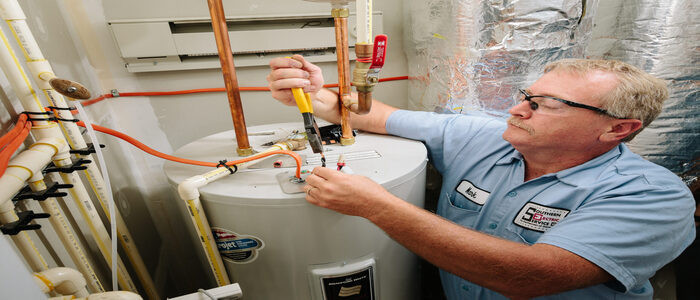views
Introduction
If your hot water heater is acting up, you're not alone. Hot water issues are one of the most common household plumbing problems. Fortunately, many of these problems can be solved with a few quick fixes — no need to panic or immediately call in the pros. At Parzival Plumbing, we want to empower homeowners with the knowledge to identify and possibly fix minor hot water heater issues before they turn into major headaches.
1. No Hot Water at All?
If your water heater isn’t producing any hot water, the first step is to identify the type of heater you have — gas or electric.
- Electric Water Heater: Check the circuit breaker. If it’s tripped, reset it and wait about 30 minutes to see if the water heats up. Also, inspect the thermostat settings. Sometimes, the thermostat can be accidentally lowered or reset.
- Gas Water Heater: Make sure the pilot light is lit. If it’s out, follow the manufacturer’s instructions to relight it. If the pilot won’t stay lit, it could be a faulty thermocouple or gas valve, which may require professional help.

2. Water Is Too Hot or Not Hot Enough
Inconsistent water temperature can usually be traced back to the thermostat. Most water heaters have a thermostat dial near the bottom of the tank. The recommended setting is typically around 120°F (49°C). Adjust it slightly up or down, and wait a few hours to see if that resolves the issue.
If your water remains too cold despite adjusting the thermostat, the heating element may be malfunctioning, especially in electric models. This is a more complex fix that might require a licensed plumber.
3. Strange Noises Coming from the Tank
A noisy water heater is usually caused by sediment buildup at the bottom of the tank. Over time, minerals in the water collect and harden, causing popping or rumbling sounds during heating cycles. You can try flushing the tank to remove sediment. Here’s how:
- Turn off the heater and water supply.
- Attach a hose to the drain valve at the base.
- Open the valve and let the water and sediment drain completely.
- Close the valve, remove the hose, and turn the water and power back on.
If the noise persists, the sediment may be too hardened or the tank may be deteriorating — in which case, call in the experts.
4. Leaks Around the Heater
Water pooling around your heater can come from loose fittings, a leaking pressure relief valve, or a corroded tank. Tightening connections can sometimes fix minor leaks. However, if the tank itself is leaking due to corrosion, it’s a sign the heater is nearing the end of its life and likely needs replacing.
5. Low Hot Water Pressure
If your hot water pressure is significantly lower than cold, mineral buildup in the pipes or heater is often the culprit. Cleaning or replacing clogged aerators and flushing the heater can help. For persistent issues, a plumber can inspect for deeper sediment issues or pipe obstructions.
When to Call Parzival Plumbing
While many hot water heater issues are minor and manageable with DIY fixes, some require the attention of licensed professionals. If you’ve tried these quick solutions and still have problems — or if you’re unsure about handling any step — don’t hesitate to reach out.
At Parzival Plumbing, we specialize in fast, reliable water heater repairs and replacements. Whether it’s a simple tune-up or a full installation, our experienced technicians are here to restore your hot water and peace of mind.
Contact us today for a consultation or emergency service. Your comfort is just one call away!






















Comments
0 comment